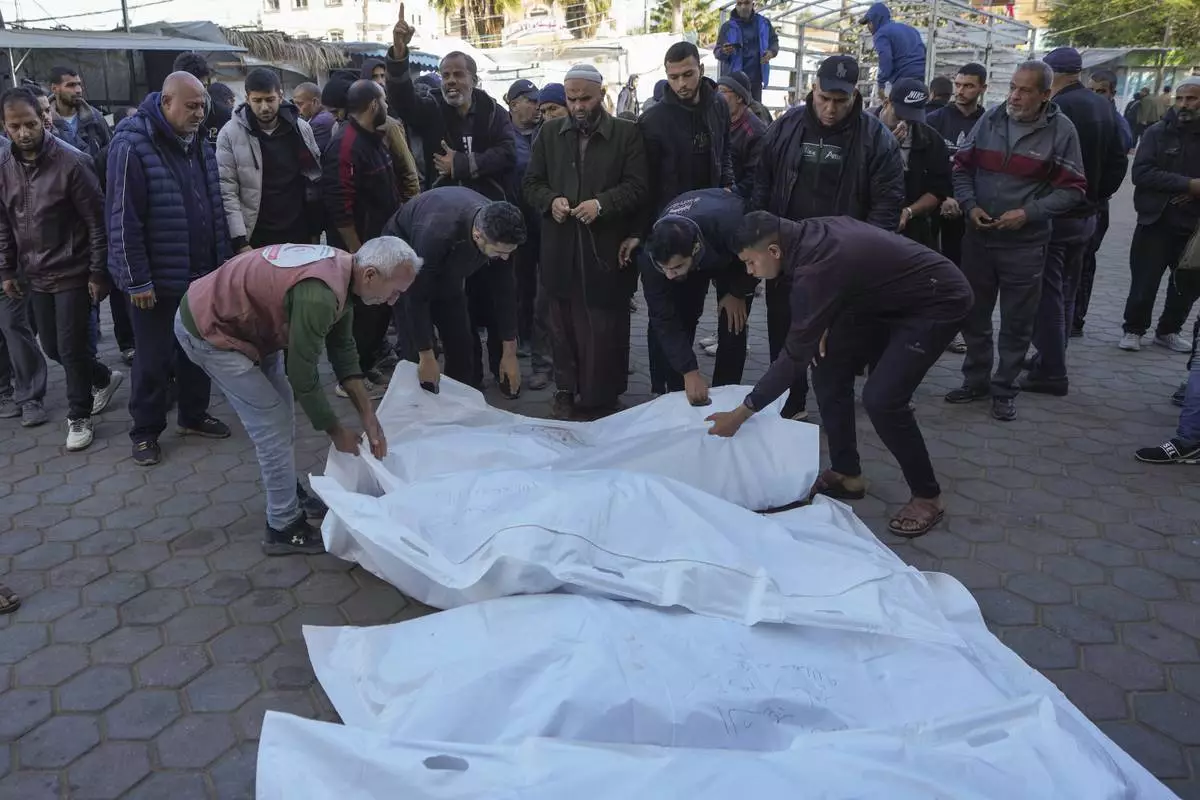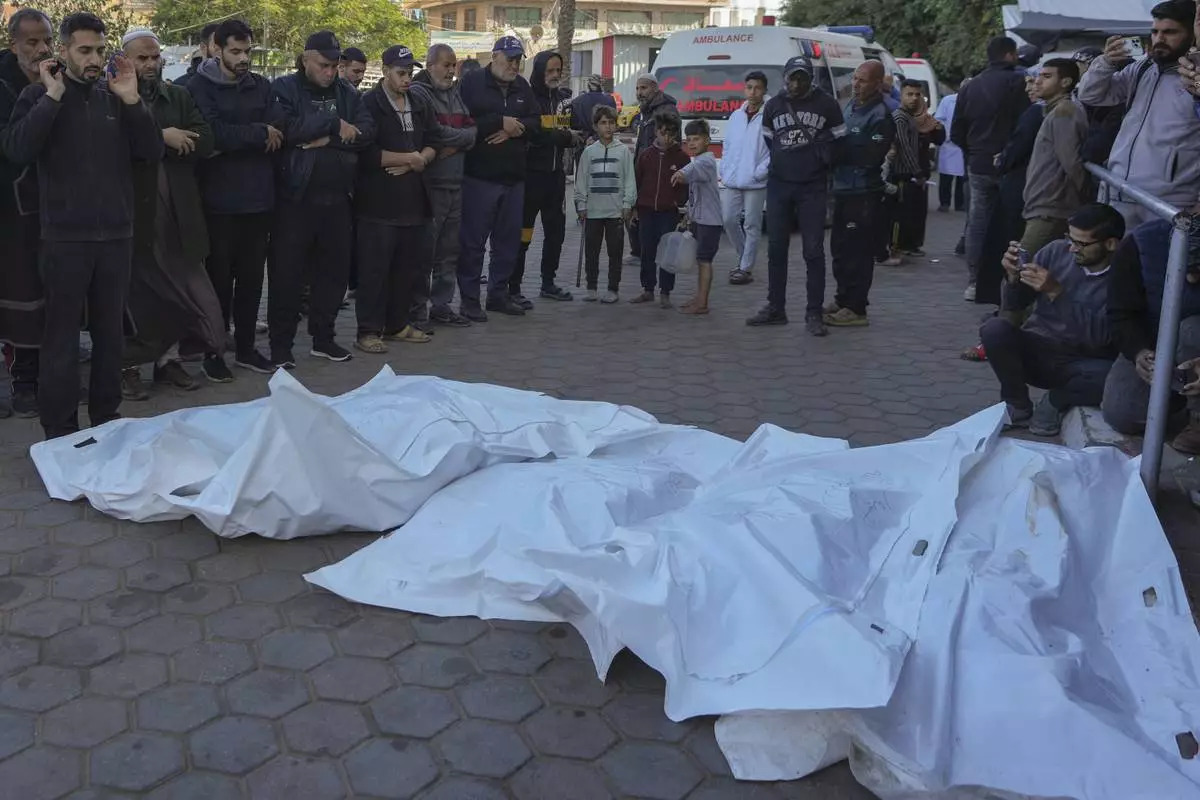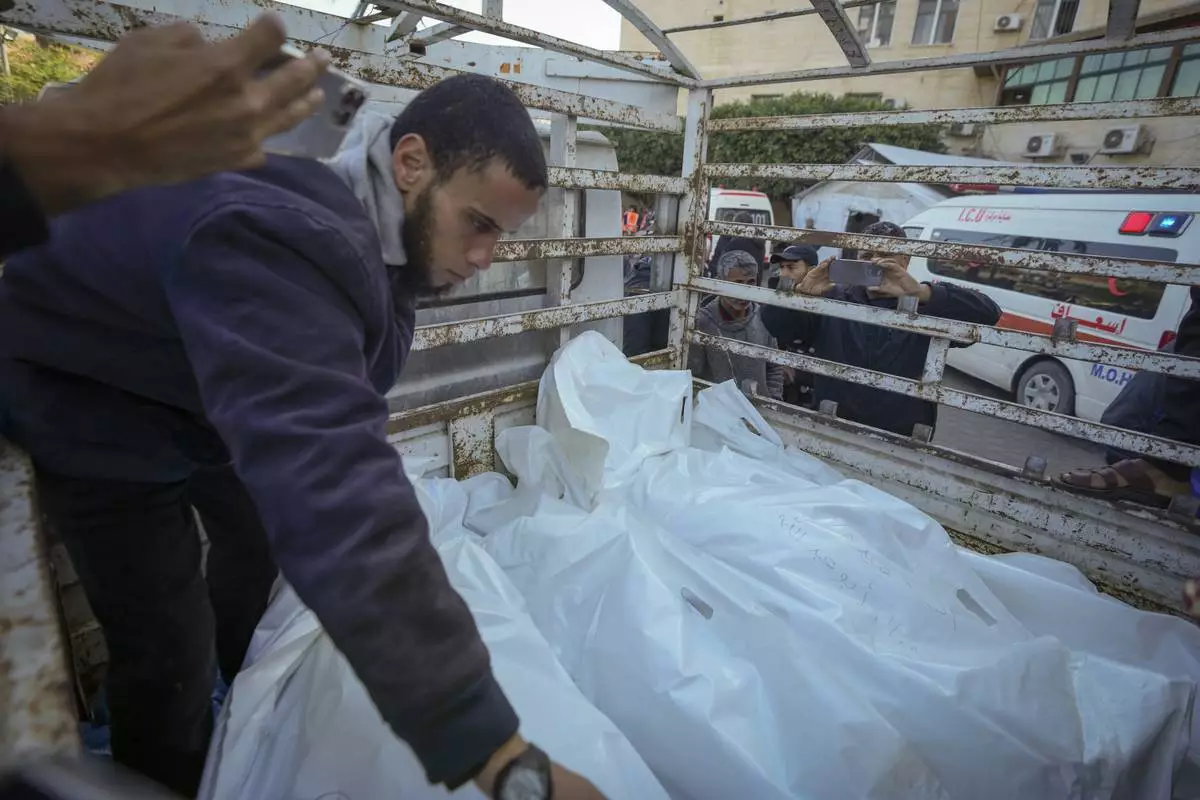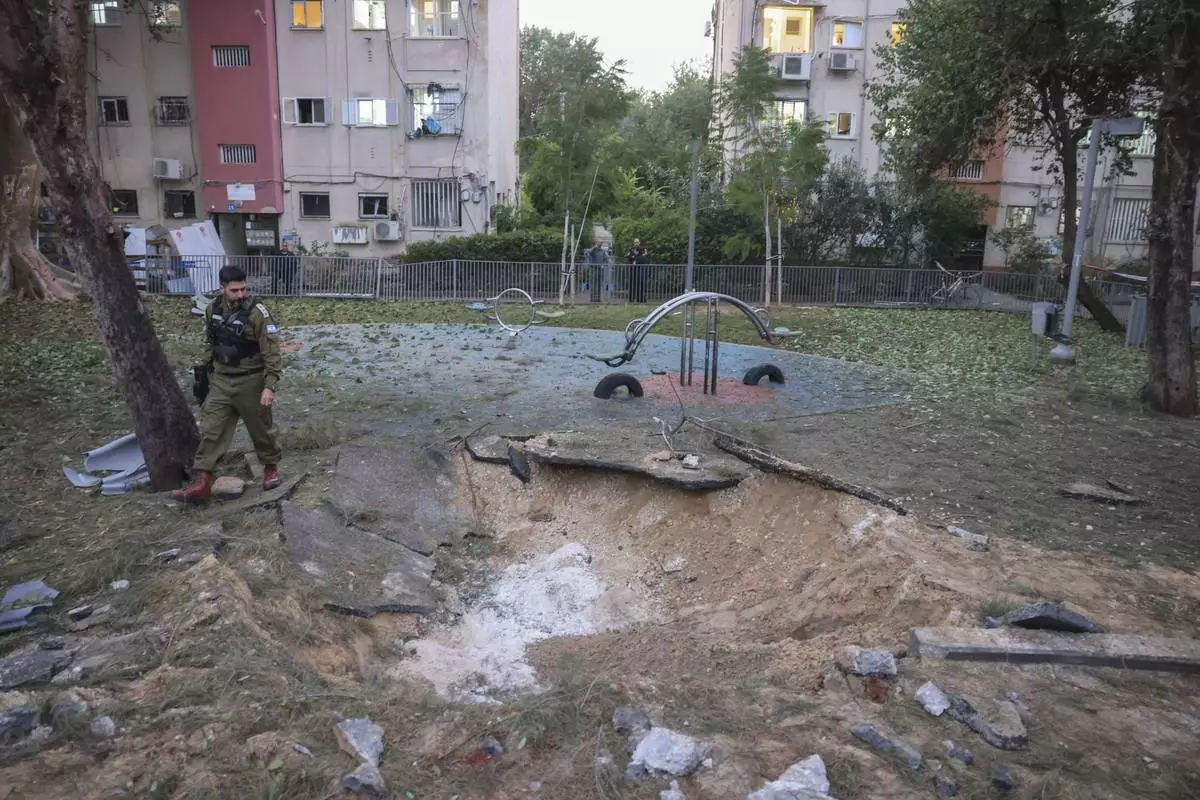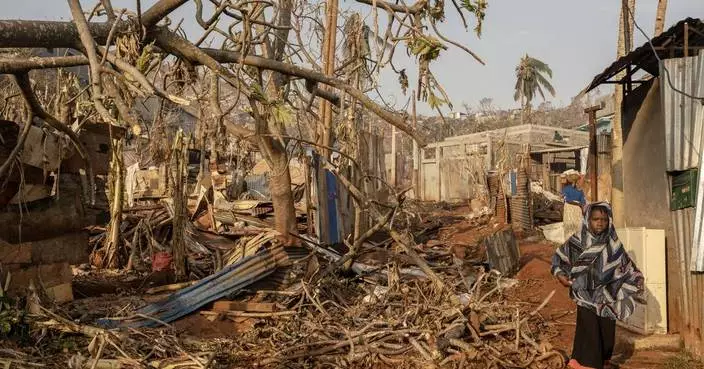WASHINGTON (AP) — Soon, the ballots will be cast, the polls will close and a campaign marked by assassination attempts, animosity and anxiety will come to an end. But for U.S. adversaries, the work to meddle with American democracy may be entering its most critical phase.
Despite all the attention on efforts to spread disinformation in the months before the Nov. 5 election, the hours and days immediately after voting ends could offer foreign adversaries like Russia, Iran and China or domestic extremist groups the best chance to mess with America's decision.
That's when Americans will go online to see the latest results or share their opinions as the votes are tabulated. And that's when a fuzzy photo or AI-generated video of supposed vote tampering could do its most damage, potentially transforming online outrage into real-world action before authorities have time to investigate the facts.
It's a threat taken seriously by intelligence analysts, elected officials and tech executives, who say that while there's already been a steady buildup of disinformation and influence operations, the worst may be yet to come.
“It's not like at the end of election night, particularly assuming how close this election will be, that this will be over,” said Sen. Mark Warner, a Virginia Democrat who chairs the Senate Intelligence Committee. “One of my greatest concerns is the level of misinformation, disinformation that may come from our adversaries after the polls close could actually be as significant as anything that happens up to the closing of the polls.”
Analysts are blunter, warning that a particularly effective piece of disinformation could be devastating to public confidence in the election if spread in the hours after the polls close, and if the group behind the campaign knows to target a particularly important swing state or voting bloc.
Possible scenarios include out-of-context footage of election workers repurposed to show supposed fraud, a deepfake video of a presidential candidate admitting to cheating or a robocall directed at non-English speakers warning them not to vote.
When a false or misleading claim circulates weeks before the election, there's time for local election officials, law enforcement or news organizations to gather the facts, correct any falsehoods and get the word out. But if someone spreads a deceptive video or photo designed to make a big chunk of the electorate distrust the results the day after the election, it can be hard or even impossible for the truth to catch up.
It happened four years ago, when a drumbeat of lies about the 2020 results spurred the Jan. 6, 2021, attack on the U.S. Capitol. Often, those arrested on accusations of trying to interfere with the transfer of power have cited debunked election fraud narratives that circulated shortly after Election Day.
An especially close election decided in a handful of swing states could heighten that risk even further, making it more likely that a rumor about suitcases of illegal ballots in Georgia, to cite an example from 2020, could have a big impact on perceptions.
President Joe Biden's victory over Donald Trump in 2020 wasn't especially close, and no irregularities big enough to affect the result were found — and yet false claims about vote-rigging were still widely believed by many supporters of the Republican, who's running for president again.
The relatively long run-up to Inauguration Day on Jan. 20 gives those looking to sow doubt about the results ample time to do so, whether they are propaganda agencies in Moscow or extremist groups in the U.S. like the Proud Boys.
Ryan LaSalle, CEO of the cybersecurity firm Nisos, said he won't feel relief until a new president is sworn in without any serious problems.
“The time to stay most focused is right now through the peaceful transfer of power,” LaSalle said. “That’s when real-life activities could happen, and that’s when they would have the greatest chance of having an impact on that peaceful transfer.”
Another risk, according to officials and tech companies, is that Russia or another adversary would try to hack into a local or state election system — not necessarily to change votes, but as a way of making voters question the security of the system.
“The most perilous time I think will come 48 hours before the election,” Microsoft President Brad Smith told lawmakers on the Senate Intelligence Committee last month. The hearing focused on American tech companies’ efforts to safeguard the election from foreign disinformation and cyberattacks.
Election disinformation first emerged as a potent threat in 2016, when Russia hacked into the campaign of Democrat Hillary Clinton and created networks of fake social media accounts to pump out disinformation.
The threat has only grown as social media has become a leading source of information and news for many voters. Content designed to divide Americans and make them mistrust their own institutions is no longer tied only to election seasons. Intelligence officials say Russia, China and other countries will only expand their use of online disinformation and propaganda going forward, a long-range strategy that looks beyond any one election or candidate.
Despite the challenges, election security officials are quick to reassure Americans that the U.S. election system is impervious to any attack that could alter the outcome of the vote. While influence operations may seek to spread distrust about the results, improvements to the system make it stronger than ever when it comes to efforts to change votes.
“Malicious actors, even if they tried, could not have an impact at scale such that there would be a material effect on the outcome of the election,” Jen Easterly, director of the U.S. Cybersecurity and Infrastructure Security Agency, told The Associated Press.

In this combination of photos taken in Pennsylvania, Democratic presidential nominee Vice President Kamala Harris speaks at a campaign event, Aug. 18, 2024, in Rochester, left, and Republican presidential nominee former President Donald Trump speaks during a campaign event, Aug. 19, 2024, in York. (AP Photo)

Director of the U.S. Cybersecurity and Infrastructure Security Agency (CISA) Jen Easterly speaks to The Associated Press in Washington, Wednesday, Oct. 2, 2024. (AP Photo/Ben Curtis)

FILE - Chester County, Pa., election workers process mail-in and absentee ballots, in West Chester, Pa., Nov. 4, 2020. (AP Photo/Matt Slocum, File)



